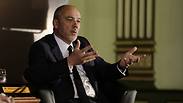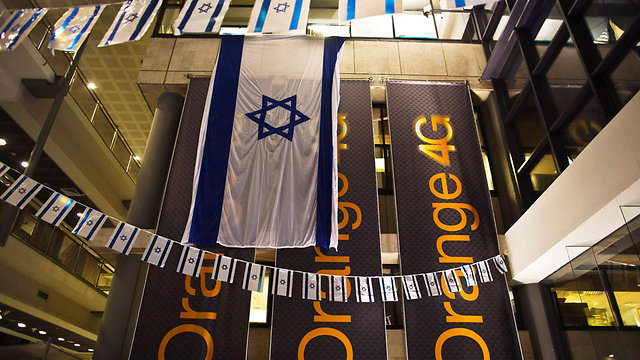
France opposed to boycott of Israel
Orange CEO asks to meet Israeli ambassador; Fabius stresses Orange's right to set its own policy, says France opposes boycott.
French Foreign Minister Laurent Fabius sought to calm a row with Israel on Friday, saying France opposed any boycott of the Jewish state but stressing telecom firm Orange, which plans to end its licence deal there, was free to define its own policy.
"While it is up to the president of the Orange group to define the commercial strategy of its company, France is firmly opposed to any boycott of Israel," he said in a statement.
In an exclusive interview to Ynet on Friday morning, Chief Executive and Chairman of Orange, Stephane Richard, rejected recent accusations of anti-Semitism and support of the world-wide Boycott, Divestment and Sanctions (BDS) movement against Israel saying, "We love Israel. This has absolutely nothing to do with the kind of political debate in which I don't want to be."
Later Friday, Richard took the unusual step of requesting to meet Israel's ambassador to Paris, Yossi Gal, in order to clarify his statements.
Richard's comments to Ynet came just two days after saying in Egypt that he intended to withdraw Orange from its collaboration with Israel's Partner Communications, a popular cell-phone service provider in Israel. The collaboration has allowed Partner to use the Orange name since 1998. Partner provides service to Israeli settlements in the West Bank.
The Orange executive said that potential financial penalties and an inability to fight them in Israeli courts were the reasons that Orange could not pull out of its deal with Israel immediately. He also seemed to suggest that the decision was in part due to the firm's relations with Arab countries.
"I know that it is a sensitive issue here in Egypt, but not only in Egypt... We want to be one of the trustful partners of all Arab countries." Orange said his comments were taken out of context.
However, Richard rejected the notion in his interview that he had caved into pressure by BDS activists calling for the boycott of Israeli companies. "I was not aware that there is an international campaign regarding this; I'm very sorry about this."
"It is a purely commercial point regarding the use of our brand by a company under a license agreement," he said. "We don't want to do that. Now we have a contract with Partner with an option for us to stop the use of the brand in the future, but not tomorrow of course. I have never said that Orange wanted to withdraw from Israel."
On Thursday, just one day following Richard's comments in Cairo, Orange publically announced its intentions to end its deal with Partner communications, saying in a statement, "In line with its brand policy, Orange does not want to keep its brand presence in countries where it is not an operator. Within this framework, and while strictly respecting existing accords, Orange would like to put an end to this brand licensing,"
Partner communications pays NIS 15 million yearly for the use of Orange's name, a relatively miniscule amount for the company that sees revenues of tens of billions of Euros. "The interest for us (in Israel) is certainly not a financial interest," said Richard during his comments in Cairo. "If you take those amounts on one side and on the other side the time that we spend to explain this, to try to find a solution and the consequences that we have to manage here but also in France, believe me it's a very bad deal."
On a more personal note, Richard told Ynet that, "I am really affected by the idea that some people could imagine that we want to withdraw for political reasons. I am (making) a purely commercial and legal point."
Meirav Crystal contributed to this report.












